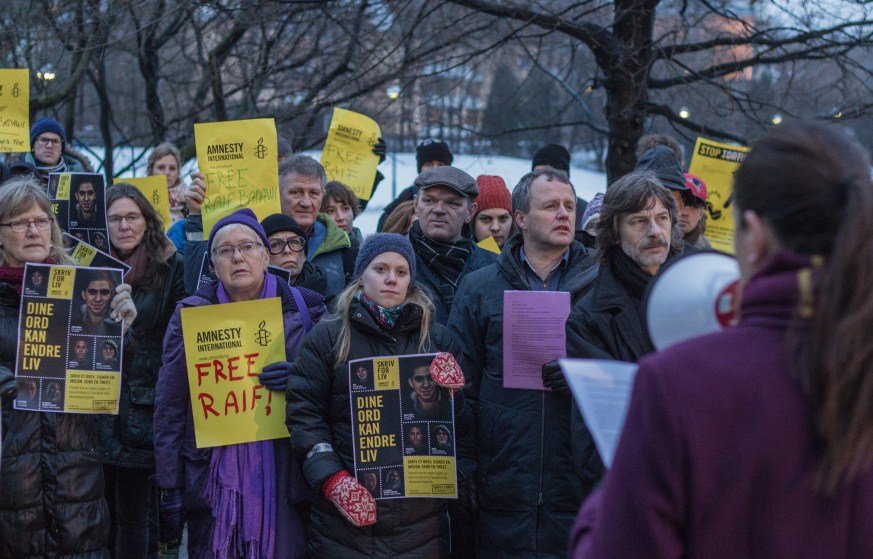Georgia, a country in the South Caucasus region, has witnessed a surge of violence against media representatives in 2023, with about 45 cases of various types of attacks, harassment and intimidation recorded by Transparency International (TI) Georgia. The incidents ranged from physical assaults, threats, vandalism, cyberattacks, and legal pressure, and targeted journalists, cameramen, editors, and media owners. The perpetrators included radical groups, public officials, law enforcement officers, and unidentified individuals. The authorities failed to ensure effective investigations and accountability for most of the cases, creating a climate of impunity and fear among media professionals.
A Tragic Death That Sparked Outrage
One of the most shocking and tragic cases of violence against media in Georgia occurred on July 5, when opponents of Tbilisi Pride, a planned LGBT rights march, unleashed a wave of violence in the capital, attacking journalists, activists, and bystanders. According to the Georgian Charter of Journalistic Ethics, a self-regulatory body, 53 media representatives were injured while covering the events. The police were unable to prevent or stop the attacks, and in some cases, even participated in them.
Among the victims was Lekso Lashkarava, a cameraman for TV Pirveli, a pro-opposition television station. He was severely beaten by a group of assailants, who also damaged his camera and microphone. He was hospitalized with multiple injuries, including a fractured skull and a brain concussion. Six days later, he was found dead at his home by his mother. The cause of his death remains unclear, as the forensic examination results are still pending. The Ministry of Internal Affairs claimed that drugs were found in his body, but his family and colleagues disputed this allegation and accused the authorities of covering up the truth.

Lashkarava’s death sparked outrage and protests in Georgia, with thousands of people demanding justice and the resignation of the prime minister and the interior minister. Media representatives and civil society activists accused the government of failing to protect journalists and enabling the violent groups that attacked them. They also criticized the government for abandoning the EU-mediated agreement that ended the political crisis after the 2020 parliamentary elections, and for refusing to hold snap polls as stipulated by the agreement.
A Pattern of Attacks and Impunity
Lashkarava’s case was not an isolated incident, but rather a culmination of a pattern of attacks and impunity that has plagued the media environment in Georgia for years. According to TI Georgia, the number and severity of violence against media increased in 2023, especially during the municipal elections in October, which were marred by allegations of pressure on voters, vote-buying, and an unlevel playing field. The organization documented 18 cases of physical and verbal attacks on media representatives during the election period, mostly by supporters of the ruling Georgian Dream party or local officials. Some of the attacks resulted in serious injuries, such as broken bones, concussions, and eye damage.
The authorities’ response to these incidents was inadequate and ineffective, as most of the investigations were either delayed, suspended, or closed without any charges. Only five people were convicted and sentenced to prison for violence against journalists in 2023, while dozens of others remained unpunished. The lack of accountability created a sense of impunity and emboldened the attackers, who continued to target media representatives with impunity.
The violence against media was also accompanied by other forms of pressure and interference, such as legal actions, cyberattacks, vandalism, and surveillance. For example, in March, the European Court of Human Rights upheld the decision of the Georgian Supreme Court that transferred the ownership of Rustavi 2, the most popular and critical television station in the country, to its former owner, who was seen as loyal to the government. The decision was widely criticized by local and international observers as a blow to media freedom and pluralism in Georgia. In June, parliament adopted a controversial bill that authorized indefinite wiretapping and other surveillance against individuals, without notifying them, in relation to 77 offenses, including some related to media activities. The bill raised concerns about the protection of journalists’ sources and privacy, and the potential for abuse of power by law enforcement agencies.
A Need for Urgent Reforms and Accountability
The situation of media freedom and safety in Georgia is alarming and requires urgent reforms and accountability. The government should take concrete steps to ensure the protection of journalists and media outlets from any form of violence, harassment, or intimidation, and to bring the perpetrators to justice. The authorities should also respect and uphold the principles of media independence, pluralism, and diversity, and refrain from any interference or pressure on the media. The government should also implement the recommendations of the EU, which conditioned Georgia’s candidacy for membership on progress on 12 issues, many of which are related to human rights, democracy, and the rule of law.
The media community and civil society should also play an active role in promoting and defending media freedom and safety in Georgia. They should continue to monitor and document the cases of violence and pressure on the media, and to advocate for the rights and interests of journalists and media outlets. They should also cooperate and coordinate their efforts to raise awareness and mobilize public support for media freedom and safety. They should also engage in dialogue and cooperation with the authorities, the international community, and other stakeholders, to seek solutions and reforms that would improve the media environment in Georgia.
Violence against media in Georgia is not only a threat to journalists and media outlets, but also to democracy, human rights, and peace in the country. It is the responsibility of all actors and institutions to ensure that the media can operate freely and safely, without fear or favor, and to contribute to the public interest and the common good.
